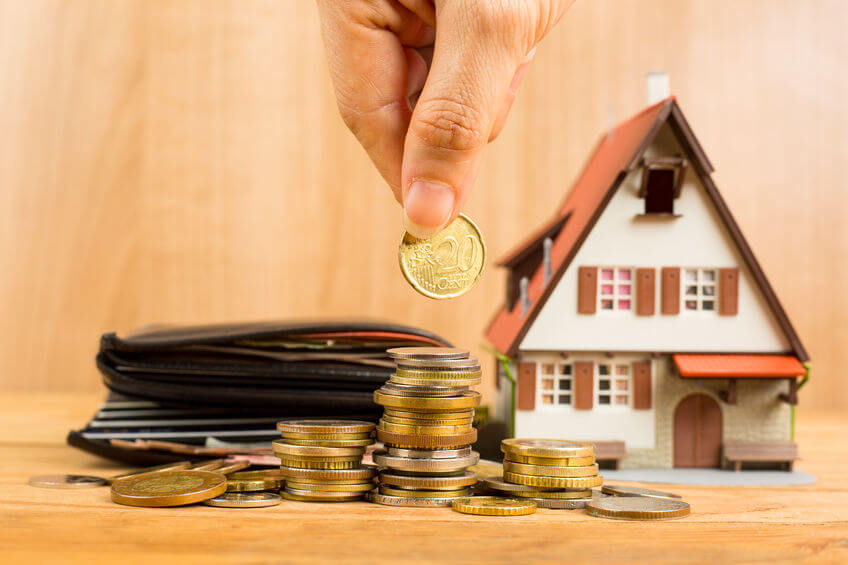Although we don’t know the exact time when interest rates will be raised, we know it’s coming.
The long-term result of a rate increase will be ultimately be a good thing for consumers, but in the short-term, it may result in a bumpy ride.
So what kind of an impact could an interest rate hike have on your finances, and what moves should you make before it occurs? Let’s examine the following four areas:
1. Investments
An sudden interest rate hike could have a significant effect on the stock market and your investment portfolio. According to reports, investors should pay particular attention to their bond holdings.
While an interest rate hike often pushes up yields, it causes bond values to go down. However, it’s still nearly impossible to perfectly time the market and strategize when and if to move money.
Your best option is to establish an investment strategy that takes into account your time horizon and risk tolerance. A financial professional can help you assess your particular situation.
2. Credit
Since most credit cards have variable interest rates, expect them to be on the rise in the near future. According to a study noted in a recent CNBC article, if the federal funds increases rate increases to 1.125 percent (as U.S. central bankers are predicting) by the end of the year, consumers will pay about $2 billion more in finance charges.
Hopefully you pay off your credit cards in full each time your statement comes around. If you don’t, however, now is the time to make it a priority—especially on cards that already have high interest rates. Start with those first so you can help minimize interest charges and erase your debt sooner. Also try to take advantage of zero-percent balance transfer offers sooner rather than later as they may not be around for long.
In the long-term, focus on your credit score. No matter how much money you make, you still need to be smart about the way you spend it and pay your bills on time in order to maintain a positive credit score. No matter how much the Federal Government raises interest rates, you can withstand it by moving your credit standing to the next level.
3. Mortgages
Fixed mortgage rates often change in anticipation of what the government plans to do with national rates—even before any moves are made. So if you’re thinking about refinancing, don’t wait. Fixed rates are still hovering at 4 percent, but that’s not likely to be the case when short-term interest rates are raised. It’s the same story with fixed-rate home equity loans, which will also likely experience raised rates.
If you’re thinking about buying a house in the near future, try to complete the deal sooner rather than later. Not only are interest rates on the rise, but demand for housing likely is as well. Anticipation of higher interest rates generally makes the process of finding a quality home at a reasonable price a lot more difficult.
4. Auto loans
Average transaction prices for vehicles have risen in recent years, causing more consumers to finance vehicle purchases. As prices have gone up, so have the terms on fixed-rate loans.
If you have six months or less left on a lease, you may want to consider trading that vehicle in before interest rates are significantly increased. Dealerships often let you end a lease a few months early in order to lock you into a contract with a new vehicle.
The question of whether to wait to buy a new vehicle isn’t completely clear. While loan rates may be more favorable now, vehicle prices tend to be lower in August and September as dealerships are working to sell last year’s models and promote new vehicles. Consider your personal situation and whether you truly need a new car right now, or whether you can wait. Don’t simply buy a car because it’s a good deal, or because the deals aren’t going to be as favorable in the future.
Banking
The upside of a rate increase is you may see your savings account generate a little more interest than usual. The average money market and savings account currently offers 0.44 percent, according to Bankrate.com, and many consumers are earning even less.
While increases are expected, they likely will be slower to come around than the interest rate hikes on loans and credit cards. Banks’ terms usually allow them to be slower to raise rates on savings products. They can also determine their own rates and change them as they desire.
Before rates are raised, try to avoid committing any large amounts of money into a long-term certificate of deposit (CD). Rates that are high right now probably won’t last, and there are better options to grow your money. Talk to a financial professional about other investment options that would make more sense.
Take away: It’s good to understand what the coming interest rate hike could have on your wallet. That way, you can make informed decisions about your finances in order to hopefully ensure a more profitable future.






